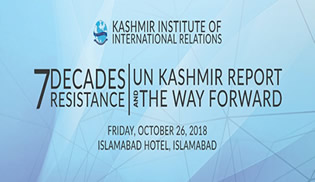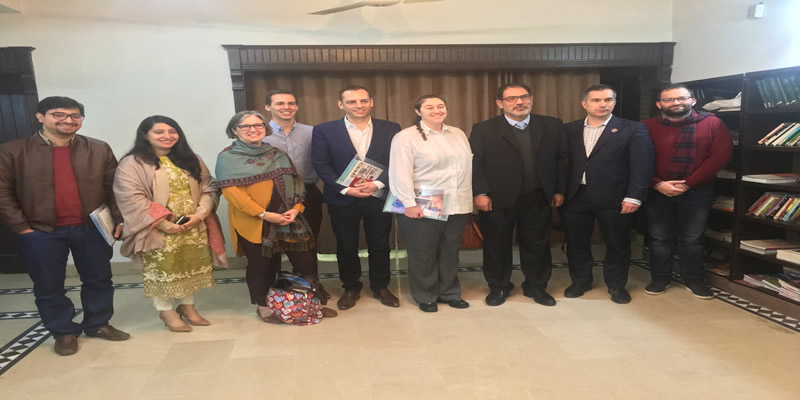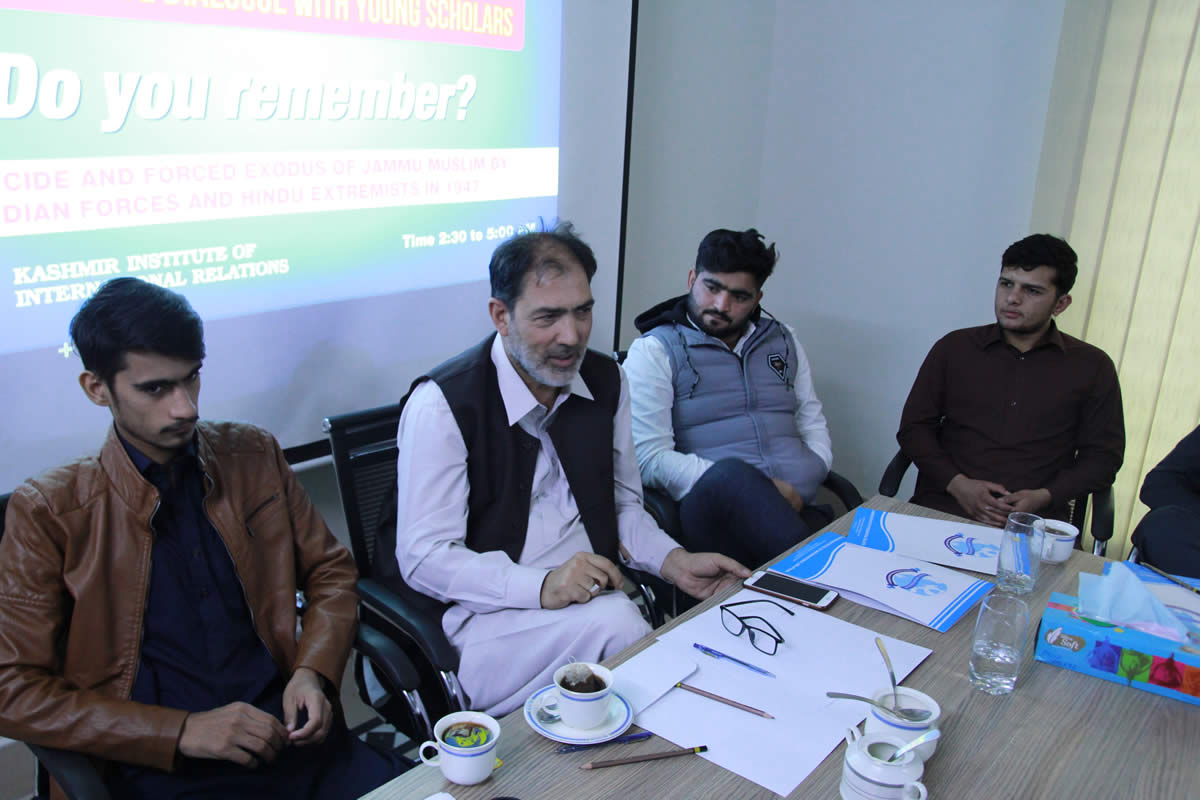CHANGING THE DEMOGRAPHICS OF INDIAN OCCUPIED KASHMIR - UNDERSTANDING THE NEW DOMICILE LAW
Report
The seminar titled “Changing the Demographics of Indian Occupied Kashmir-Understanding the New Domicile Law”, was organized by Kashmir Institute of International Relations (KIIR), held at National Press Club. Altaf Hussain Wani, the Chairman of KIIR, welcomed all the participants and honorable speakers. The panel of speakers included the renowned names from the National and International political domain. Ahmad Qureshi Executive Director YFK, Farooq Rehmani, Senior Leader APHC, Yousaf Naseem Senior Leader APHC, Ambassador ® Aizaz Ahmad Chaudhry DG ISSI, Rafiq Ahmed Dar Leader APHC, Ambassador ® Ishtiaq Andrabi, Syed Mohammad Ali Senior Research Fellow IPI, Bilal Ahmer Soofi Former Minister of Law & Justice, Parliamentary & Human Rights, Justice ® Shah Khawar, Mushtaq Muhammad Khateeb Convener APHC attended the seminar as honorable speakers.
Welcome & Introductory Remarks by Altaf Hussain Wani Chairman KIIR
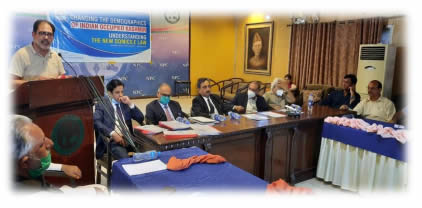
After a humble recitation of the Quran by Sheikh Abdul Mateen Sahab, Altaf Hussain Wani, Chairman KIIR, officially opened the house for the discussion. He encouraged and requested all the speakers to formulate the suggestions and proposals, which could be helpful to generate solutions and way forward for Kashmir. He proposed to the Prime Minister of Pakistan, Imran Khan, to formulate the National Action Program, for the purposefully uniting the political parties of Azad Jammu and Kashmir and Pakistan. He suggested that we should submit an FIR against Modi, the commander of Indian security forces, who are violating human rights in Indian Occupied Kashmir.
Ahmad Qureshi, Executive Director YFK,
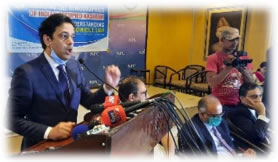
emphasized on improving the ways of lobbying through which Pakistani and Kashmiri youth could confront the Indian policies which are absolutely demolishing the idea of self-determination in Indian occupied Kashmir. He discussed the changing dilemma of diplomacy in both India and Pakistan. The international community and media has recognized the human rights violation in Indian occupied Kashmir, thus the condemnation of India has been increased rapidly, which could be evident as the success of Kashmiri people. Moreover, his idea was to educate our youth academically so we could fight for the freedom of Kashmir, on international forums by using every possible political, social, cultural, humanitarian and economic aspects and struggles of Indian occupied Kashmir. He said that we need to improve our ways to critique the so-called Democratic Republic of India. The two internationally recognized Human rights reports by the UN in 2018 and 2019, are evidence that the Kashmir issue is a global issue, as it is the deadliest ongoing conflict on the earth in terms of Human Rights Violation. He also expressed that International relations do not remain the same. Indian diplomacy, which was known to be the best in the international arena, is now being criticized worldwide from the past four years, due to the Human rights violation in Indian Occupied Kashmir.
Farooq Rehmani, Convener APHC,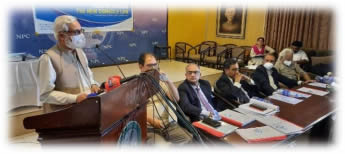
truly depicted the essence of the Kashmiri struggle. He emphasized on resolving the Kashmiri issue by skeptically analyzing the strategic flaws of Indian Occupied Kashmir. He said that international great powers must condemn India on violating human rights in IOK rather than considering Kashmir dispute as internal affairs. He declared India as A NEW ISRAEL. India under the autocratic rule of Modi Sarkar is not threatening Pakistan or its immediate neighbors, but it seems to be a global threat.
Yousaf Naseem, Senior Leader APHC,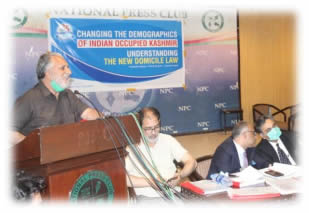
explained the Modi doctrine “Hindutva” as the alleged brutal frame to violate human rights deliberately. He expressed how Modi made BJP and his government so powerful that they had amended the foremost important protection laws of the Indian constitution regarding Kashmir. It’s been a year since the Indian government abrogated and manipulated Article 370 and 35 A of the Indian constitution, thus making Indian occupied Kashmir a JAIL.
Aizaz Ahmad Chaudhry, Director General ISSI,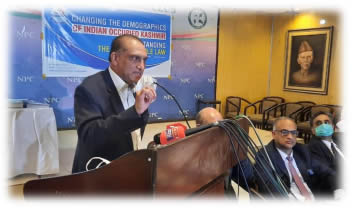
appreciated both the national and international political forums that have raised awareness and their cumulative voice that have condemned Indian autocratic policies regarding Indian occupied Kashmir. He said that now it is the need for urgency. We need to raise our concerns. We need to expose India on a global level. He declared RSS as a terrorist organization. Modi’s extremist policies are also being criticized by their own people. Indian people deliberately are declaring the human rights violation in IOK as a Genocide. India is in an apologetic state because its government is working on autocratic policies instead of its secular democratic status. It's high time that India should be felt isolated in the region, as it had already disturbed all of its neighbors. So we should cumulatively join hands against the human rights violations in IOK. He also appreciated the step of changing the geographical interpretation of the map of Pakistan.
Rafiq Dar, Leader APHC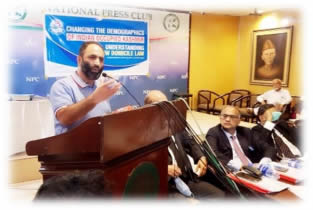
revealed that contemporarily, India’s attitude is activist in nature. We should grab this opportunity to expose India. Indeed India had made a move of amending the new domicile law to disintegrate Indian occupied Kashmir. He suggested that we should introduce the peculiar step to integrate that to Azad Kashmir. He indicated that we should recall the Kashmir issue out of bilateralism, as India had demolished the bilateral agreements between Pakistan and India, then why are we holding up to this matter. Even we should not involve in such bilateral dialogues too. Additionally, he also considered the Human Rights Commission reports of no use because the perpetrators are still out of jail and they had not mentioned any structural laws, suggestions and amendments.
Ambassador Ishtiaq Andrabi,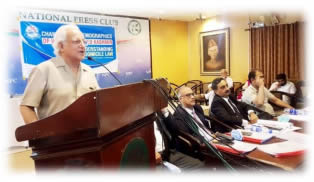
explained that Kashmir should get freedom from India. We should use social media forums to raise our voice against the brutal policies of India. He focused on educating people about creating narratives and slogans that would be helpful to expose extremist India. He explained the power of phrases and slogans. Furthermore, he also made a historical comparison between Israel to India and Palestine to Kashmir.
Syed Mohammad Ali, Senior Research Fellow IPI,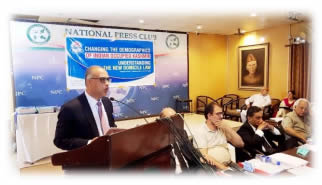
defined that Kashmir dispute is not restricted to geographical, political or Human Rights Violation but it is contemporarily a matter of hybrid warfare. The international community should recognize this aspect. We are living in the global era thus each and every person has the right to connect and speak, so there is a dire need to raise voice for the freedom of Kashmir on an individual as well as cumulative level. He suggested that there should be equal distribution of power among the houses of Azad Jammu & Kashmir assembly. Instead of just protesting and condemnation, there should be a proper comprehensive united forum for policy-making based on the Kashmir issue. He also Aug 6th, 2020 5 F: kiirnpo www.kiir.org.pk T: @_KIIR_ recommended that there should be an appointment of a special envoy on Kashmir, who would be constantly dedicated to engaging Kashmir to the International community. He also proposed that there should be a whole dedicated team who will establish a place where all of the laws, constitutions, UN resolutions and international community’s statements and concerns regarding Indian occupied Kashmir, would be accurately combined to form policies and it should be available on Foreign ministry webpage as a database. He conveyed that there should be structured and frequent meetings on such Kashmir representative forums. Every person should participate in local journalism to spread awareness regarding the Kashmir dispute. He also proposed that Kashmiri diaspora should write letters and raise voice against the human rights violation on their local forums in front of their councils. In addition to this, he said that the rapidly increasing defense budget of India, their extremist Hindutva policy and their adherence to nuclear power, is a threat to the world, so the world should keep an eye on India’s moves. He declared that violence in an instrument of Indian policy. He said that we should spread the narrative of declaring RSS, BJP and Bajrang dal as terrorist organizations.
Bilal Ahmad Soofi, Former Minister of Law & Justice Parliamentary & Human Rights,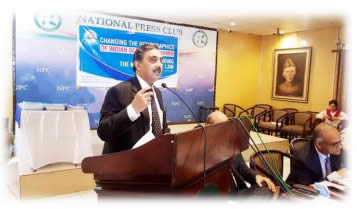
encouraged the question answers session from the participants. He cleared their queries efficiently and accurately. He suggested that we should not only use the abrogation of article 35 A and article 370 of Indian constitution by the Indian government of 5th August 2019, to legally condemn the Indian government on the international level, but we should take the consideration of other serious legalities too. We should challenge the demographic change of IOK by amending article 35 A unilaterally. Though India used article 35 A as an instrument of annexation in Indian occupied Kashmir it should be dealt with distinctively to article 370. We could use the social media forum to expose the perpetrators, and while doing so, when these types of videos which are created by the registered government-sponsored organizations, are removed by these international forums like youtube, we could condemn Indian actions on international levels. He also proposed to analyze the specific boundaries of IOK, in which the plebiscite by the UN could be done. Moreover, he emphasized the importance of Kashmiri’s right of self-determination to increase momentum across the world.
Mushtaq Muhammad Khateeb, Convener APHC,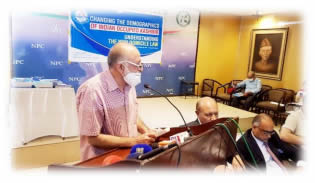
explained the factual historical aspect of Indian Occupied Kashmir. He described how the geographical and political changes erupted in IOK. He suggested that each and every person who has the power to speak should be responsible to raise voice against the Indian atrocities. Both national and international NGOs, Human Rights organizations and government institutions should speak for the right of self-determination of Kashmiris. He spoke against the unilateral action of the Indian government to revoke the special status of Kashmir. He requested that the Organization of Islamic Conference should listen to these voices of the Kashmiris. He said that instead of Pakistan’s blacklisting in FATF, India should be on that list because of the destructive and extremist policies of Modi’s government, from the incident of exterminating Muslims from Gujrat to IOK. He threw some light on the demolishing of the Babri Masjid by Modi sarkar and converting it into Ram mandir, definitely showing brutal and fascist policies of India.
Justice Shah Khawar,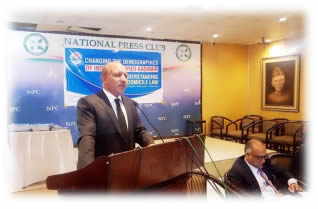
emphasized that these suggestions given by the well-known speakers should lead to practical implementation. He encouraged the raising voices in the favour of Kashmir across the world. He said that these united voices would surely break the silence of the international community. Furthermore, he suggested that these raising voices should not be confined to one day only, but we need to constantly enchant the slogan of freedom to support the Kashmiri cause. He expressed sorrowfully that even Muslim countries mainly OIC have remained silent on this issue. Despite the Indian atrocities in Indian occupied Kashmir, Muslim states have made diplomatic, social and economic relations with India for their selfinterest. It is the urgent proposal that the Prime Minister of Pakistan needs to join hands with the representatives of permanent members of the Security Council on one line agenda, ‘Kashmir’. The foreign minister of Pakistan needs to visit important states individually to brief the situation of human rights violations in Indian Occupied Kashmir. He also proposed the appointment of a special envoy on Kashmir.
MEDIA COVERAGE
Past Events














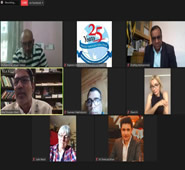
_1627626452.jpg)
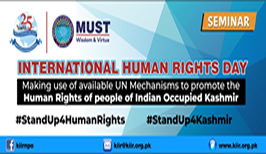
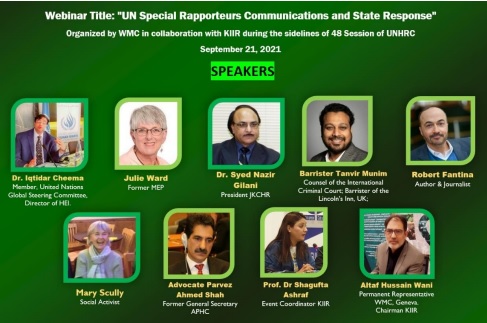
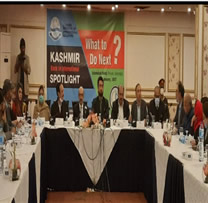
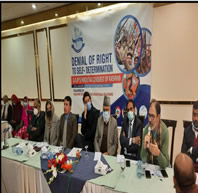
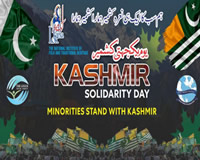
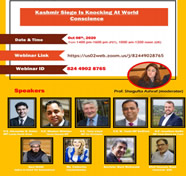
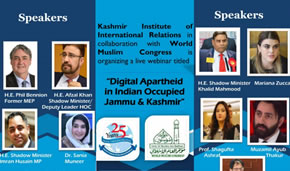
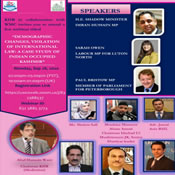
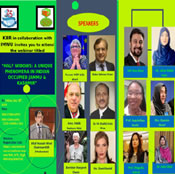
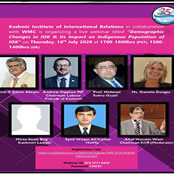
_1627627084.jpg)
